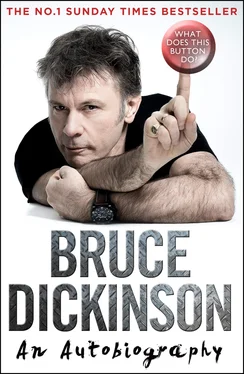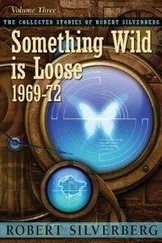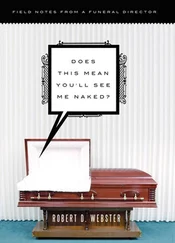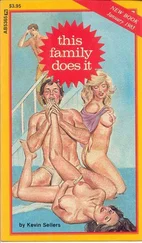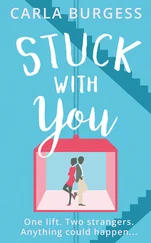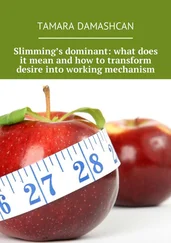My house was called Sidney, and it had a grand mock-Georgian façade with a sweeping gravel drive. It backed onto acres of rugby and cricket pitches, and was miles away from the school classrooms. To this day I walk at breakneck pace everywhere in mortal terror of being late for English Lit. I covered, I guess, about five miles before lunch with an armful of textbooks. Nowadays, it’s probably hoverboards and iPads doing the hard work.
One of the first things to strike me, before the whips, chains and blunt instruments (more of that later), was a most-illuminating bout of salmonella poisoning. Along with red lipstick and beehive hairdos, you can add fish pie to the chamber of horrors that haunts me to this very day.
My auntie Dee attempted to kill me, along with 20 of my house mates, and a sharp piece of microbial detective work traced the offending pathogen back to a serving spoon. Those unlucky enough to take the left-hand path (fun though it might seem for witches) in the serving line were struck down by Pasteur’s revenge. Those in the right-hand queue suffered no ill effects. The stomach cramps began three hours after ingestion of the emetic fish pie. Shortly afterwards I was admitted to a ward to join my similarly stricken schoolmates. For three days stuff erupted from every available orifice. The lyric ‘And I filled them – their living corpses with my bile’ from ‘If Eternity Should Fail’ didn’t require all that much imagination.
We were kept rather busy with sport. Being no good at it meant being designated ‘pathetic’. Being good at it meant you walked on a small cloud and were infallible.
The school had innumerable rugby teams, and had a boathouse with eights, fours and sculls, plus cricket teams, shooting teams, tennis, squash and the somewhat obscure but popular game of fives.
Before being allowed to go in a boat of any description, children underwent the ‘boat test’. In the Middle Ages witches underwent a similar ordeal. It involved being dressed in army boots, jeans and a thick wool army sweater, and then being chucked in the river.
A road bridge over the River Nene served as the vantage point to observe the drowning of the adolescent witches. Victims were picked up and tossed into the freezing water, and had to swim 25 yards or so without drowning. Imagine how much I enjoyed that. I was regarded as being a possible rower, so I had a discreet second attempt, and a third. I think they would have just carried on until I drowned, so I gave up breathing, thought of my baptism and swallowed a lot of water before finally being fished out by a boat hook. The practice was discontinued shortly thereafter, when dead cows were found, infected with some horrendous bug, floating bloated upstream.
I was, of course, bullied, and as before in my previous school I didn’t back down, change my opinion or shut up. So, two years later, a bit of a fuss blew up, parents were called in, pupils were suspended and then it all petered out. But for those two years life was average-to-middling hellish.
We slept in dormitories, army-barrack style: cold giant windows with no curtains, and two lines of iron beds; a thin mattress on a chipboard base, a couple of blankets and cotton sheets. There was no privacy, no locks on drawers, and it was communal baths and washrooms. Things got interesting after lights out. After the teacher had left, the senior boy would wake me up. Half an hour later, a crowd would gather round. He was around 18, a big lad. He had a pillow wrapped into a tight ball.
‘Time for your lesson, Dickinson. Defend yourself,’ he’d say.
Not exactly Queensberry rules, and not much you could do about it, except build a reservoir of rage and anger. Often, my bed was pre-soaked or covered in eggs, or my personal kit was covered in washing-up liquid, or any number of petty infractions of personal space.
By year two I was pretty fucking angry. Rugby didn’t even touch the beginning of my rage, and I quite enjoyed rugby. Believe it or not, I was a prop, and as others got bigger but I did not, I was variously a hooker (not enjoyable), scrum half (not very good) and I finally settled down as a flanker, or wing forward as it was in rugby pre-history.
My sidestep was the Army Cadet Force. Sure, there was a hierarchy, but oddly the regime wasn’t directed mindlessly against me. It was the same bullshit for everyone. We had 400 in our cadet force, and I progressed rapidly through the various ranks, until one day I found myself being promoted to the exalted rank of under officer.
There were only two of us, and the other was one of my few close friends at Oundle, Ian, who went on to be a lieutenant colonel in the Highland Regiment and served in some pretty hairy locations. The last time we met, after 25 years, was in a grubby hotel in Jeddah. I was a captain flying a Boeing 757 chartered by Saudi Airlines during the Hajj and he was in charge of the Saudi National Guard. Go figure.
At Oundle we found ourselves with unexpected privileges. There were enough guns and ammunition in the school armoury to start a coup d’état in a small African nation. All of it was Second World War vintage. There were 100 or so 303 Lee–Enfield rifles, half-a-dozen Bren guns, thunderflashes, two-inch mortars, smoke grenades, and live and blank ammunition. Both of us had attended the UKLF leadership course, where we were equipped with all the latest army kit and spent two weeks in Thetford being chucked out of helicopters, doing 24-, 36- and 48-hour exercises, and getting a lot of blisters.
My platoon supervisor had been in the SAS, and he told me I was above average in teamwork, but average everywhere else. I spent summers on attachment with the Royal Anglian Regiment and the Royal Green Jackets, and dangled off lots of ropes at Lympstone with the Royal Marines. I was pretty serious about joining the army.
Ian and I hatched a plan to make our Wednesday afternoons more interesting and productive. Incredibly, as 16-year-olds, we had the authority to sign for and withdraw rifles and automatic weapons, high explosives and blank ammunition. So every Wednesday, that’s what happened. We would come up with scenarios then wander off armed to the teeth into a local wood and shoot the crap out of each other.
I should set the scene at Oundle School. Before 1914, the British Empire was demanding technocrats. The traditional public schools churned out the Greek-and-Latin educated civil servants to be, but the dark days of the future demanded leaders who understood metalwork, mechanical engineering and electronics.
Oundle established what was essentially an industrial estate. It had an aluminium foundry, composite and fibreglass workshops, lathes, milling machines, and woodworking, blacksmithing and metalworking shops. Every term, I spent one week dressed in overalls learning to chop and assemble bits of wood, metal and plastic.
The aim of all this activity was to build a vice. The halves were cast from wooden moulds in the foundry. The sand moulds you made yourself, and there were various ways of sabotaging them to make life less dreary.
Excessive moisture and too much tamping of the sand in the mould would cause it to explode. Even better was to leave a hole in the bottom of the mould so that molten aluminium dripped onto the shoes of the pourer – the taciturn master in charge, Mr Moynihan. I suspect he quite enjoyed having his shoes set on fire. To this end he came equipped with multi-layered steel-capped boots, asbestos helmet and gloves, plus a rich choice of language, which meant that no one would skip the foundry lesson.
‘Faacking ’ell … ’Oo faacking set fire to my faacking feet?’
Mr Moynihan was a good sport and he taught me never to panic, even when you are on fire.
In woodwork I was an abject failure, although I designed and built the world’s most useless and uncomfortable chair and the most incompetent set of bookshelves yet devised. Even M.C. Escher would have been confused as to where to position his books.
Читать дальше
